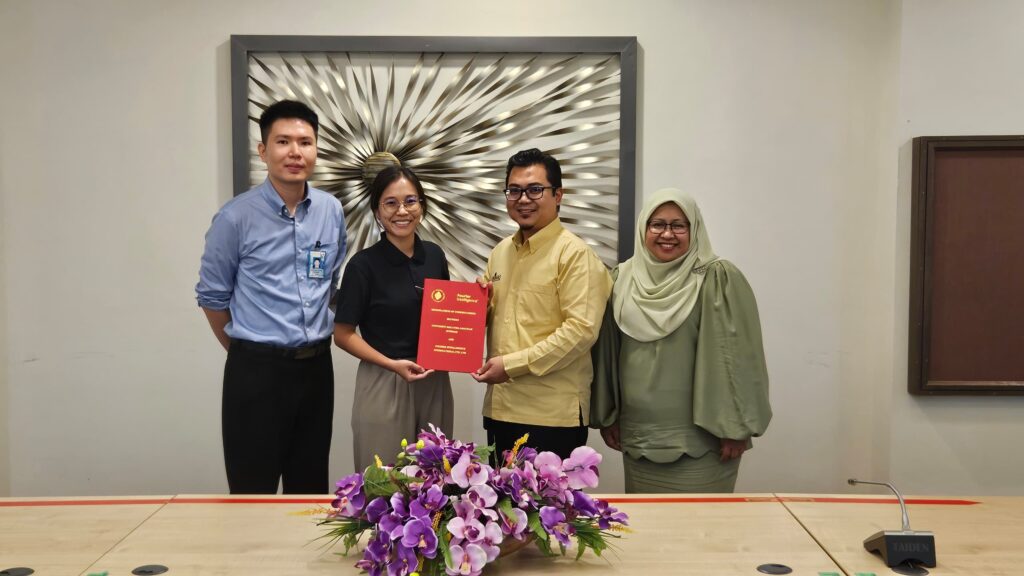
KOTA SAMARAHAN, 2nd October – In a simple yet meaningful ceremony, Prof. Dr. Asri Said, Dean of the Faculty of Medicine and Health Sciences (FPSK), UNIMAS, and Heng Tsi Hein, a representative from Fourier Rehab International Division, exchanged the Memorandum of Understanding (MoU) documents at the faculty yesterday. The event was also attended by Prof. Dr. Nariman, Deputy Dean (Undergraduate), and Dr. Chai Chau Chung, a Rehabilitation Medicine Specialist.
Fourier Intelligence is a leading company in smart technology and robotics for high-tech rehabilitation products, with over 1,000 centres around the world. By working closely with top research institutions, they continue to push the boundaries of what’s possible in medical and rehabilitation engineering.
This MoU marks the start of an exciting collaboration between UNIMAS and Fourier Intelligence. It aims to foster professional networking, research, teaching, academic conferences, and staff and student placements. The partnership will not only support the exchange of knowledge but also provide students with valuable, hands-on learning experiences.
“This is a fantastic opportunity for biomechanical research and artificial intelligence,” shared Prof. Dr. Asri Said. “It aligns perfectly with our plans for the UNIMAS Hospital and the research centre we’re setting up with the Faculty of Engineering and Faculty of Computer Science and Information Technology. We hope this partnership will drive forward new solutions in rehabilitation medicine, enriching our students’ learning and ultimately benefiting the wider community.”
Dr. Chai Chau Chung elaborated on the scope of the collaboration, explaining that it involves partnering to organise local and international conferences and workshops that integrate advanced technology and innovation in rehabilitation medicine. “This partnership also aims to expose our students to the latest technological advancements, inspiring and preparing them as future-ready graduates for the 4th and 5th industrial revolutions in healthcare and rehabilitation,” he said.
He further emphasised that the collaboration promotes multidisciplinary research and innovation with industrial support, focusing on developing affordable and effective rehabilitation technologies that are accessible to the communities. “By exploring the use of artificial intelligence (AI), the Internet of Medical Things (IoMT), robotic rehabilitation, virtual reality, and even metaverse-based telerehabilitation, we can address the logistical challenges in delivering effective rehabilitation services, especially in places like Sarawak,” he added. “This effort aligns with the World Health Organization (WHO)’s ‘Rehabilitation 2030’ initiatives and its vision of ‘Rehabilitation: The Health Strategy of the 21st Century.'”
UNIMAS is excited to explore new horizons in rehabilitation medicine with Fourier Intelligence, all with the hope of creating meaningful and positive change. HH